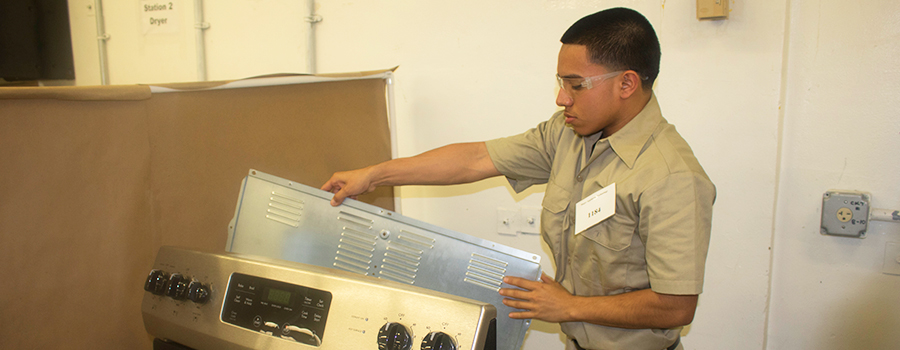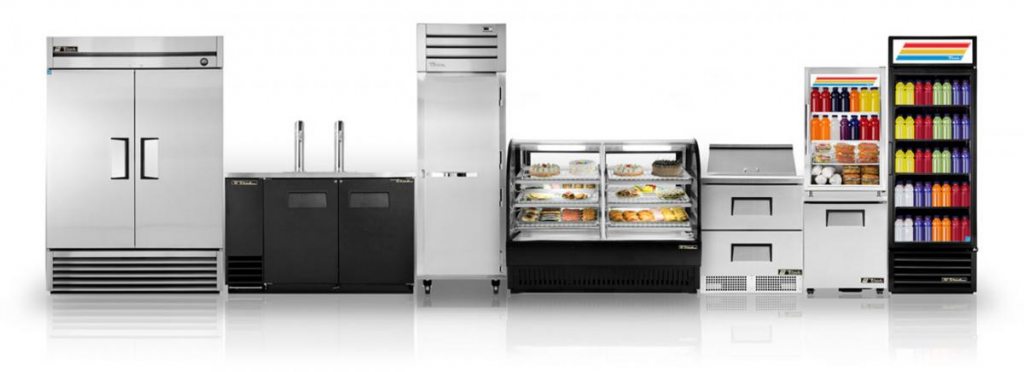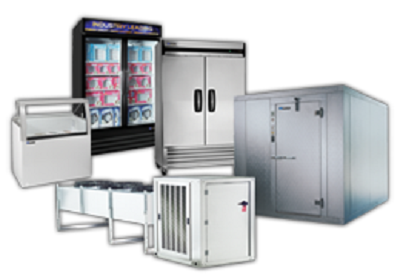Your Appliance Emergency Plan: Best Appliance Repair Near You Dependable Refrigeration & Appliance Repair Service’s Checklist
Your Appliance Emergency Plan: Best Appliance Repair Near You Dependable Refrigeration & Appliance Repair Service’s Checklist
Blog Article
Crucial Tips for Effective Ref Repair to Expand Device Life-span
When it involves your refrigerator, correct fixing and upkeep are crucial for longevity. You might not understand exactly how tiny concerns can rise if they're left unaddressed. Routine check-ups and simple solutions can save you from costly substitutes down the line. Recognizing usual troubles and knowing when to act can make all the difference. Allow's check out some necessary ideas that will certainly help you maintain your fridge running efficiently for years ahead.
Comprehending Typical Refrigerator Issues
Refrigerators are necessary in maintaining your food fresh, however they can experience a series of common issues that interrupt their performance. One frequent concern is insufficient air conditioning. If you see food spoiling quicker than usual, check the thermostat settings or think about if the door seals are damaged. An additional common trouble is too much sound, which could suggest a malfunctioning compressor or a falling short fan. You might likewise experience water merging inside or beneath the fridge; this commonly arises from a clogged defrost drainpipe or a damaged water line. In addition, if your refrigerator's light isn't working, it can be a simple light bulb issue or an issue with the door button. Ice build-up in the fridge freezer can prevent air flow and cooling down performance. Identifying these problems early can conserve you money and time in repairs, guaranteeing your refrigerator runs smoothly and efficiently.
Regular Maintenance Practices
To maintain your devices running smoothly, you need to remain on top of routine maintenance techniques. Clean the condenser coils, examine the door seals, and keep track of the temperature setups to guarantee peak performance. These basic jobs can conserve you money and time on fixings down the line.
Tidy Condenser Coils Routinely
Cleaning your condenser coils on a regular basis can greatly boost your home appliance's efficiency. Dirt and dirt build up on these coils over time, causing your home appliance to function more difficult and consume even more power. To keep them clean, disconnect your appliance and carefully eliminate any protective covers.
Examine Door Seals
3 simple steps can aid you ensure your appliance's door seals are in good problem. Check the seals consistently for any type of fractures, rips, or indicators of wear. These damages can lead to air leakages, affecting performance. 2nd, tidy the seals using warm, soapy water to get rid of any type of debris or gunk. A tidy seal ensures a tight fit and much better performance. Finally, do a basic test by closing the door on a notepad. If you can quickly pull it out without resistance, the seal could require changing. By complying with these actions, you'll keep your home appliance's efficiency and durability, conserving you money on energy expenses and repair services over time.
Monitor Temperature Settings
Consistently checking your appliance's temperature level settings is crucial for best performance and efficiency. Whether you're handling a fridge, freezer, or oven, watching on these setups can prevent lots of problems. For fridges, go for temperatures in between 35 ° F and 38 ° F; for freezers, linger 0 ° F. If the temperature levels are too expensive or reduced, your home appliance might function harder, wasting power and shortening its lifespan. Utilize a thermometer to inspect these settings on a regular basis, particularly after significant changes, like moving your home appliance or changing the thermostat. If you see changes, adjust the settings accordingly and seek advice from the user manual for assistance. By remaining proactive about temperature surveillance, you'll assure your devices run smoothly and last longer.
Repairing Cooling Issues
When your fridge isn't cooling effectively, it can cause ruined food and threw away money, so attending to the problem quickly is essential. Start by examining the temperature setups to verify they're at the recommended degrees, typically around 37 ° F for the refrigerator and 0 ° F for the fridge freezer. If the settings are correct, check the door seals for any type of gaps or damage; a faulty seal can enable cozy air to enter.
Check the condenser coils, normally situated at the back or base of the device. Clean them with a vacuum or brush to optimize performance. If issues persist, it could be time to call a professional.
Taking Care Of Water Leakage and Ice Accumulation
If you're dealing with water leakage or ice accumulation in your home appliance, it's vital to identify the source of the problem. By determining click over here where the water is coming from, you can prevent additional concerns and prevent pricey fixings. Let's explore some efficient techniques to tackle these usual issues.
Determine Leak Sources
Exactly how can you successfully identify the sources of water leakage and ice accumulation in your devices? Begin by evaluating the seals and gaskets on your refrigerator and fridge freezer doors. A used or damaged seal can allow warm air to go into, triggering condensation and ice. Next off, check the drainpipe pan and drain system for clogs or obstructions; a backed-up drain can cause water merging. Search for any kind of loosened connections in the water supply line, which can produce leakages. Additionally, examine the defrost drainpipe for ice accumulation, which might interrupt appropriate drain. By systematically examining these locations, you'll pinpoint the source of the issue, enabling you to take the needed steps to repair it and expand your home appliance's life expectancy.
Prevent Ice Formation
To protect against ice formation in your appliances, begin by verifying the temperature level settings are appropriate. If your fridge or freezer is too chilly, it can cause excessive ice accumulation. Inspect the door seals consistently; harmed seals can let cozy air in, creating condensation and ice development.
Maintain the home appliance well-ventilated and prevent overcrowding, as this can obstruct air flow - Refrigerator repair experts Dependable Refrigeration & Appliance Repair. Regularly defrost your freezer if it doesn't have an automated defrost function.
If you notice water leakage, determine and fix any obstructed drain openings, as they can contribute to ice accumulation. Lastly, tidy the coils and verify they're operating correctly to preserve peak efficiency. Taking these steps will help prolong your device's lifespan and performance.
Dealing With Noisy Fridge Appears
While it might appear alarming, a loud refrigerator frequently indicates minor concerns as opposed to significant malfunctions. First, identify the resource of the noise. Common culprits include the compressor, fans, and water lines. If you hear a humming noise, it could be the compressor functioning hard; this could just be a normal operation noise.
Next, cooking gas stove repair near me check for loose items inside. Sometimes, containers or racks can rattle, creating undesirable sound. Tighten or reposition them to get rid of the audios.
If you see a clicking sound, it could be the defrost timer. This is normally harmless but can indicate it needs evaluation.
Lastly, verify your fridge is degree. An out of balance appliance can create resonances and noise. Use a level to check, and readjust the feet if needed. Attending to these problems without delay can aid keep your fridge's performance and lengthen its lifespan.
When to Change Components vs. Full Substitute

Nevertheless, if your appliance is older and experiencing numerous problems, a full substitute can be a lot more affordable. Think about the expense of repair work versus the appliance's value. If repair services exceed 50% of a new unit's price, it's normally wiser to buy a substitute. In addition, if you discover ongoing troubles that maintain reoccuring, it's an indication that your device has actually reached completion of its life. Consider these elements thoroughly to make the most effective choice for your requirements and budget.
Knowing When to Call a Professional
How can you tell when it's time to contact a professional for appliance repair work? If you observe unusual sounds, scents, or leaks, it's a clear signal that something's incorrect. Don't neglect these indications; they usually suggest deeper concerns. If your appliance quits working altogether or frequently trips breaker, it's an additional red flag.
You ought to additionally consider your own convenience level with fixings. If you're uncertain concerning detecting the problem or do not have the right devices, it's finest to reach out for aid. Bear in mind, attempting challenging repair services can cause even more damages or also security threats.

Often Asked Concerns
Just how Typically Should I Clean the Fridge Coils?
You ought to cleanse your fridge coils every six months. This helps maintain effectiveness and avoids getting too hot. If you see extreme dirt or family pet hair, clean them extra regularly to assure your refrigerator runs smoothly.

Can I Use Vinegar for Cleaning My Refrigerator?
Yes, you can utilize vinegar to clean your refrigerator! It's an outstanding all-natural cleaner that removes odors and discolorations. Who Repairs Dryers in Oro Valley? Dependable Refrigeration & Appliance Repair Service. Just blend it with water, use it to surface areas, and wipe down for a fresh, clean fridge
What Temperature level Should My Refrigerator Be Ready To?
You ought to establish your fridge to 37 ° F(3 ° C) for excellent food preservation. This temperature check my blog level keeps your food fresh while stopping wasting, guaranteeing your groceries last longer and minimizing waste. It's a very easy change you can make!
Does a Refrigerator Required to Be Leveled?
Yes, your fridge requires to be leveled. If it's irregular, it can impact cooling down efficiency and create excess sound. Examine the leveling legs and change them to guarantee appropriate equilibrium for ideal efficiency.
Just How Can I Reduce Fridge Power Intake?
To lower your refrigerator's energy intake, keep it tidy and well-ventilated, inspect door seals for leakages, established the temperature in between 35-38 ° F, and avoid overloading it. These steps can substantially lower your energy costs.
Report this page